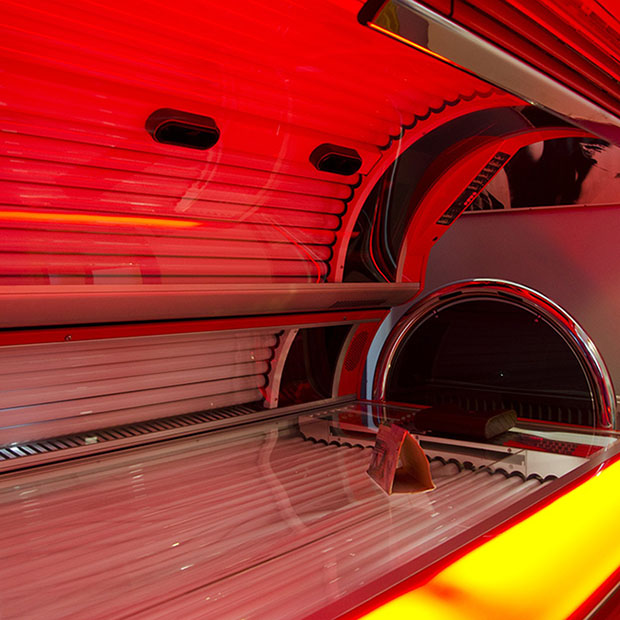Indoor Tanning and Eye Health and Safety

Some people might think of indoor tanning as the safer alternative to sunbathing, but that is far from accurate.
In fact, in a briefing before the US Congress, eye doctors, dermatologists, surgeons, and other physicians spoke about the dangers of indoor tanning, and the World Health Organization considers it highly carcinogenic (cancer-causing) in humans. But what exactly is the danger to the health of our eyes from indoor tanning?
UV Exposure and Eye Damage
UV damage is cumulative, which means that the effects build up over time, even if it seems insignificant in the moment. Studies show that being in an indoor tanning bed can result in as much as 100 times the exposure to UV light as simply being out in the sun. Not only is this dangerous to the skin, it can cause serious damage to the internal and external structures of the eyes and eyelids.
Closing Your Eyes Isn’t Enough
The UV light in tanning beds is so strong that even closing your eyes during a tanning session won’t protect them. A few of the eye health problems that can result from indoor tanning are cataracts, macular degeneration, dry eye, sunburn, and blurry vision.
Cataracts and macular degeneration are typically associated with advancing age, but the UV exposure in a tanning bed can dramatically accelerate them. Cataracts are the clouding of the eye’s lens, making it increasingly difficult to see and distinguish colors. Macular degeneration is the loss of central vision. Both conditions can be exacerbated by UV rays.
If a regular sunburn makes you miserable, photokeratitis, or sunburned corneas, won’t be any more enjoyable. Symptoms include a gritty feeling under the eyelids, burning, redness, and runniness. UV exposure can also cause dry eye, another condition that leaves the eyes red and irritated, and without sufficient tear production, they’re more vulnerable to infections.
Prioritize Eye Health over Skin Tone
Tanned skin might be attractive and popular, but it is the direct result of UV damage, and that’s not even considering the risk of harm to the structures of the eye. We can’t ban anyone from indoor tanning or even sunbathing, but we encourage our patients to think carefully about whether protecting the health of their eyes and skin is more important than modern beauty standards. If you do use a tanning bed, at least make sure to wear the protective goggles.